Under Police Investigation: Polish MEP Grzegorz Braun’s Denies Auschwitz Gas Chambers
Poland’s Reckoning with Hate: From Auschwitz Denial to the Desecration of Jedwabne
Polish prosecutors opened a formal investigation into Grzegorz Braun, a far-right European Parliament member and prominent nationalist figure, following his brazen denial of the gas chambers at Auschwitz during a live radio interview. Braun went further, reviving the medieval blood libel myth by asserting—without evidence—that Jews have “committed ritual slaughter of Christians.”
Braun’s remarks are not mere reckless provocations. In Poland, denial of Nazi crimes is a criminal offense carrying up to three years in prison. Yet, Braun’s statements echo dangerous currents of antisemitism that have never fully disappeared from Europe’s political fringe—and, worryingly, have found resonance in mainstream platforms now.
The danger is compounded in an age where artificial intelligence models like Grok, trained on internet data saturated with hateful and conspiratorial narratives, can themselves generate antisemitic content—reflecting and amplifying these toxic lies back into public discourse. When even algorithms echo such falsehoods, praise Hitler and call for a second Holocaust, it’s a sign these hateful narratives are gaining traction worldwide, normalizing Holocaust denial and antisemitism.
Braun’s assertions—that Auschwitz’s gas chambers are “fake,” that Jewish religious texts such as the Talmud and Haggadah spread lies, and that Jewish organizations suppress the “truth” about ritual murder—are classic antisemitic canards repackaged for a modern audience. When confronted on air, Braun doubled down, attacking the Auschwitz Museum.
This is not mere political cynicism or provocation; it is a conscious act of Holocaust denial and ideological hatred. As Dr. Piotr M. A. Cywiński, director of the Auschwitz-Birkenau State Museum, made clear, Braun’s statements are a “disgraceful assault” on the memory of approximately 1.1 million people murdered at Auschwitz—including Jews, Poles, Roma, and Soviet prisoners of war.
The existence of gas chambers at Auschwitz is proven by Nazi blueprints, construction orders, SS confessions like that of Rudolf Höss, survivor testimonies, and forensic tests showing cyanide residue. Aerial photos and camp records further confirm mass murder operations. As early as December 1942, Polish Foreign Minister Edward Raczyński, speaking for the government-in-exile, issued a formal note to the Allies reporting the what was going on in the Polish camps. This wide-ranging evidence leaves no doubt about the systematic use of gas chambers for genocide.
The Auschwitz Museum’s statement underscores the gravity of Braun’s words—not just as lies, but as acts of desecration against survivors, victims, and their descendants. Holocaust denial is antisemitism codified into law in Poland for a reason: it poisons society and threatens the moral fabric. The Museum rejects Braun’s false claims that it suppresses scholarship and has announced plans to file a defamation lawsuit against him. Polish prosecutors are also moving forward, demonstrating that the law takes such denial seriously.
Braun is no fringe figure. With 6.3% of the presidential vote in Poland’s recent election and a seat in the European Parliament, his views carry significant political weight. Prosecutors have presented Braun with seven sets of charges related to four separate incidents, including his attack on a Jewish religious celebration in parliament where he used an extinguisher to turn off a Chanukiah on December 2023. His rhetoric is part of a disturbing trend: far-right figures weaponizing historical revisionism and antisemitic tropes to distort the past and erode the foundation of history itself.
On the very same day that Poland investigated Braun’s denial, the nation witnessed another act of historical distortion at Jedwabne, where local Poles brutally burned hundreds of Jews alive in 1941. New plaques installed near the massacre site deny Polish responsibility and rewrite history to blame Jewish victims. Braun’s denial underscores a persistent struggle over Poland’s past—a struggle where inconvenient truths are denied or inverted to fit ideological narratives.
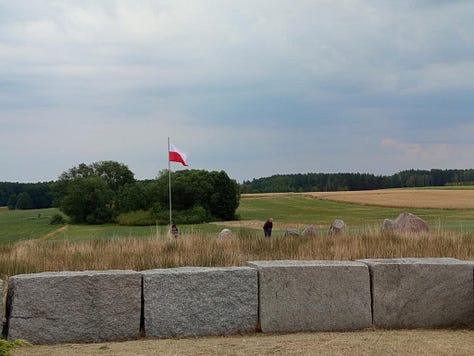
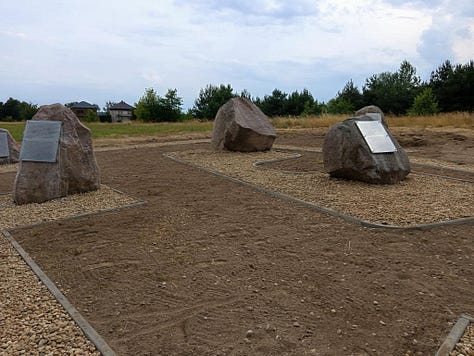
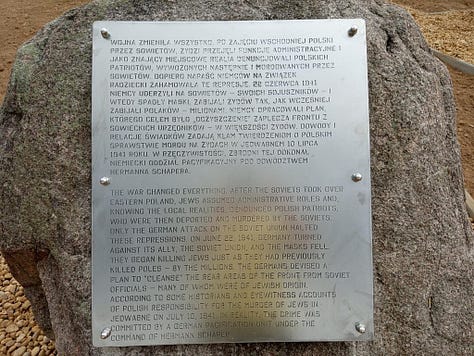
Grzegorz Braun’s Holocaust denial is a stark reminder that the fight against antisemitism and historical revisionism is far from over—it is just beginning. Denying Auschwitz’s gas chambers is not just an attack on history but on humanity’s conscience.
The Museum is currently working on a new online tool, which we hope to launch as early as July, that will enable every internet user to fight more effectively against all forms of Holocaust denial.
In confronting Braun and others like him, Poland—and the world—must stand firmly for truth, memory, and justice. Because the cost of forgetting or denying is far too great.
Never forget. Never again.




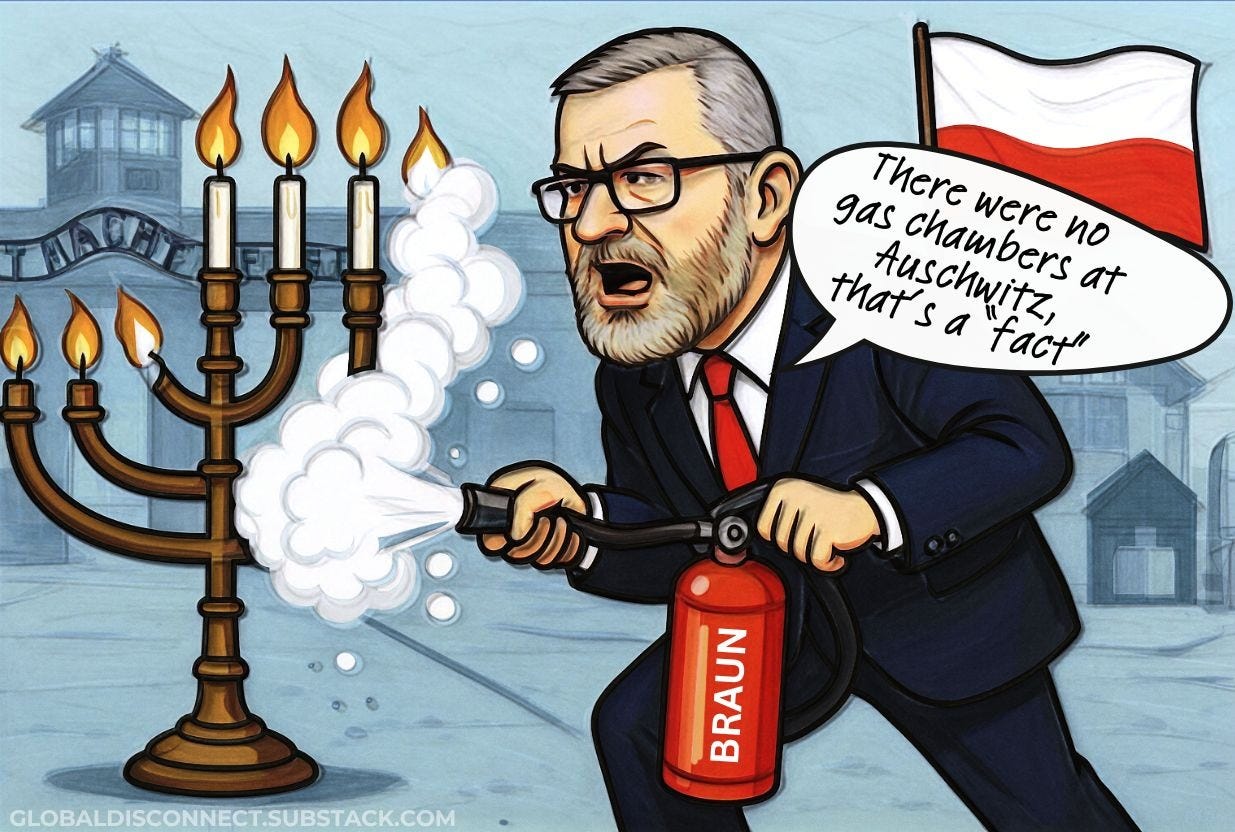


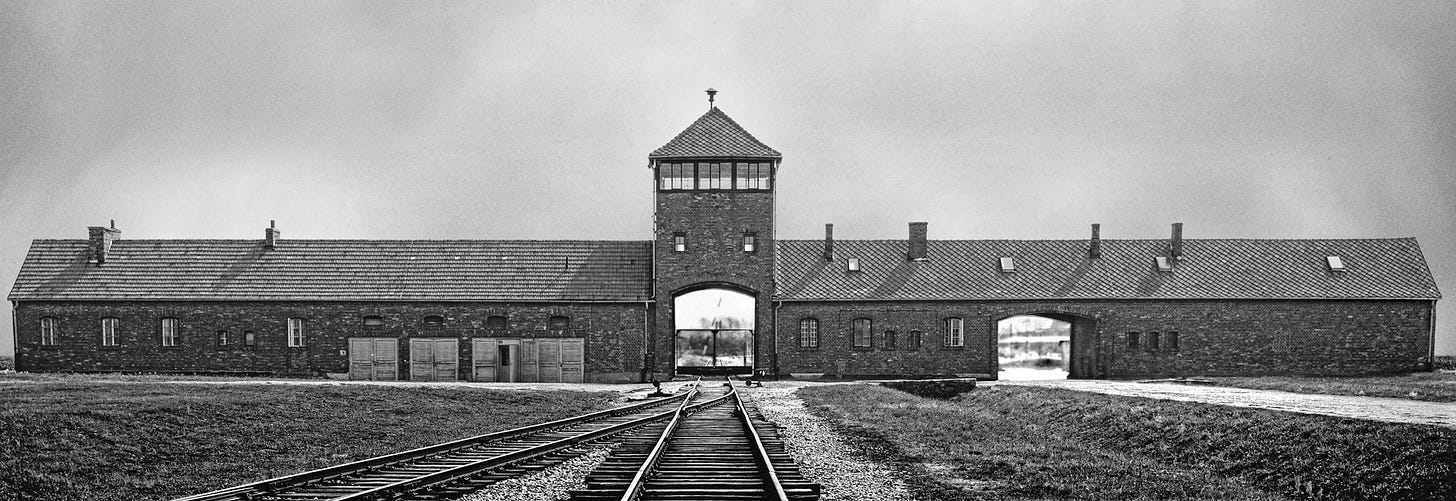

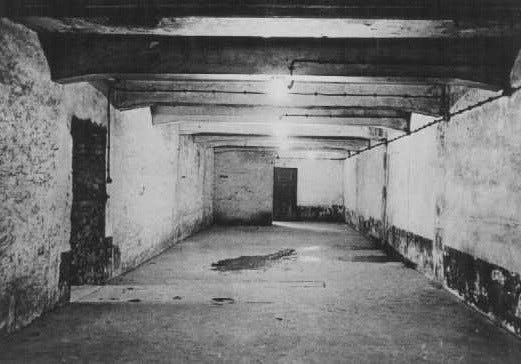




I can’t add anything but praise for Leslie’s work. I always learn so much. Thanks.